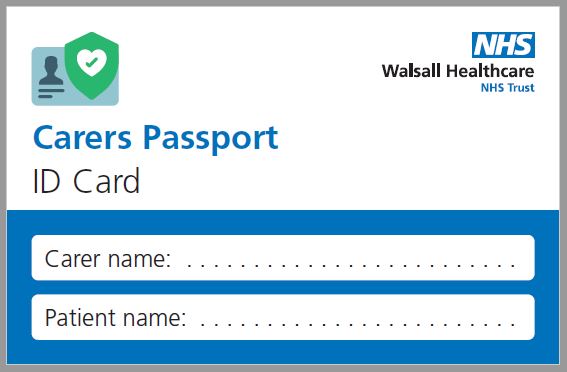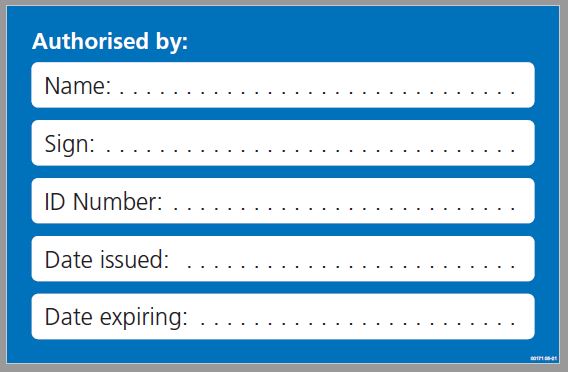A Carers’ Passport is being launched at Walsall Healthcare NHS Trust this week after a successful pilot as part of an expansion of the patient experience service.
The passport, which was first brought in at Walsall Manor Hospital in April, will be available from 1 September. It was developed by the trust’s Patient Experience Team and is aimed at ensuring those who have caring responsibilities are recognised, supported and involved within healthcare services.
The passport approach has been introduced in response to feedback – nationally as well as locally – that carers found it difficult to access information and advice and navigate the sometimes complex processes within the NHS and social care. If they are better supported this also impacts positively on the person they are caring for, as well as health professionals involved in the person’s care.
A trial of the Carers’ Passport was carried out on Ward 11 over several weeks and the feedback has been positive, from staff, carers and patients.
Matt Hill, Patient Relations & Experience Support Officer with the trust, explained: “We’ve had a really good response from people.
“Staff on the ward have found the passport really helpful and Senior Sister Amy Reynolds has really embraced the pilot, recognising its worth.
The passport gives carers an instant point of recognition and makes it easier for staff to speak to and for them to have a say in patient care. Carers take on the care responsibilities for the patient within hospital so the carer can wash the patient and give them their medication.
“Many carers struggle to have their role recognised by health and care professionals. This has a negative impact on the patient, but can also affect the carer’s own health and wellbeing.
“By introducing a Carers’ Passport, we hope to encourage more people to tell us they have caring responsibilities so we can set out the support or services available. Many people don’t see themselves as carers; they tend to “get on with things” and we also want to show our appreciation and acknowledgment of the vital role they play in our communities.”
The passport, which is royal blue in colour, will contain a credit-card sized ID card containing the carer’s name and patient name on the front. On the reverse is the name and signature of the authorising member of staff, plus the date of issue and date of expiry.
There will also be a pocket-sized passport document, which will explain what the carer can expect from hospital staff (the ‘offer’ to them), in accordance with the NHS Constitution’s commitment to carers being involved and consulted in the care and treatment of their family member or friend.
Matt added: “Carers know the person they are supporting better than anyone and their knowledge and experience should be valued and used to inform the best care and outcomes for patients. That’s our ambition here in Walsall.
“We believe the passport approach will also raise awareness of the financial and emotional difficulties faced by carers. It is not uncommon, for example, for carers to spend £100 per week on hospital parking when their Carer’s Allowance doesn’t cover this. And we know carers don’t prioritise their own health and wellbeing needs when sometimes just a few small interventions could make such a difference to them.”


